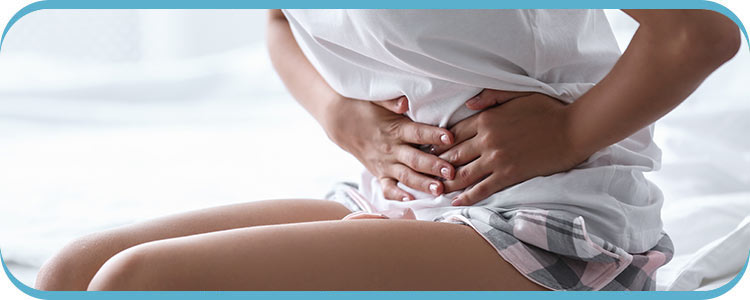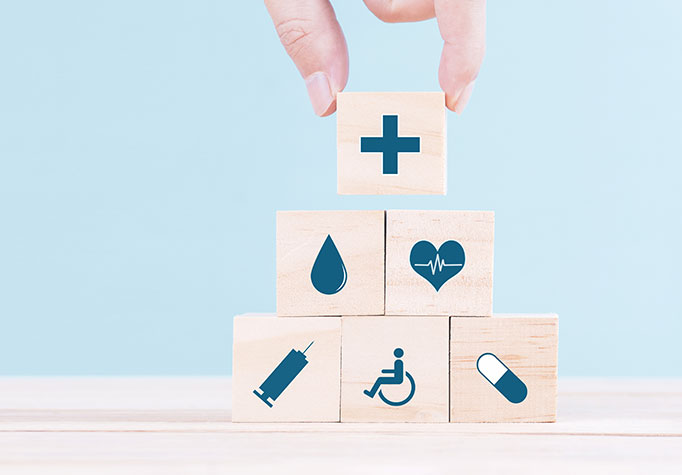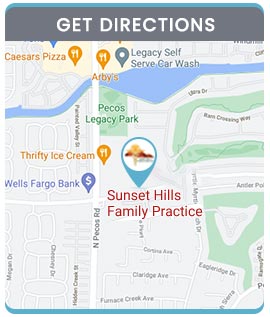What Causes Lower Abdominal Pain in Females?
Lower abdominal pain in females can arise from numerous conditions, including gynecological issues like ovarian cysts, endometriosis, or fibroids, as well as gastrointestinal disorders, urinary tract infections, or pelvic inflammatory disease. Visit Andrea Warburton, MSPHS, PA-C, and her team to address chronic or severe pain promptly and significantly to improve quality of life and prevent further complications. For more information, contact us or schedule an appointment online. We are located at 2510 Wigwam Pkwy Suite 102, Henderson, NV 89074.


Table of Content:
Is lower abdominal pain in females linked to urinary infections?
How is lower abdominal pain in females diagnosed by doctors?
Is lower abdominal pain in females common during early pregnancy?
How is chronic lower abdominal pain in females managed?
At Sunset Hills Family Practice, we often see women who are concerned about lower abdominal pain. While this discomfort can sometimes be linked to urinary tract infections (UTIs), it’s important to recognize that there are many potential causes. UTIs are a frequent reason for lower abdominal pain, especially when the bladder is involved—a condition known as cystitis. Because the female urethra is shorter, women are generally more susceptible to these infections.
Typical symptoms of a UTI include lower abdominal pain that may be cramped or constant, a frequent urge to urinate, burning during urination, cloudy or strong-smelling urine, and occasionally a low-grade fever. The pain is often located just above the pubic bone.
However, UTIs are not the only reason for lower abdominal pain in women. Menstrual cramps, ovarian cysts, endometriosis, gastrointestinal issues such as irritable bowel syndrome, and early pregnancy can all present with similar symptoms. Because of this, it’s important not to self-diagnose.
A comprehensive approach is used to diagnose lower abdominal pain in women, starting with a detailed discussion of symptoms, medical history, and menstrual cycle. Questions about the pain’s nature, duration, and location, along with related symptoms like fever, nausea, vaginal discharge, or changes in bowel or urinary habits, help provide insight into the issue. A physical exam, including abdominal and pelvic exams, is performed to check for tenderness, masses, or signs of infection.
Based on findings, laboratory tests such as urine analysis, pregnancy tests, or blood work may be recommended. Vaginal swabs may be collected to screen for sexually transmitted infections. Imaging studies, such as pelvic ultrasounds, are often used to evaluate conditions like ovarian cysts, fibroids, or ectopic pregnancy. If needed, more advanced imaging, like CT scans or MRIs, can be coordinated.
For complex cases, collaboration with gynecologists and specialists ensures the best care. Occasionally, laparoscopy may be necessary to diagnose conditions not detectable through non-surgical means. The goal is to accurately identify the source of pain and provide effective treatment.
Lower abdominal pain is a common symptom during early pregnancy, often caused by the stretching of ligaments and muscles as the uterus grows. Hormonal changes, particularly increased progesterone, can also affect the digestive system, leading to bloating or constipation, which may contribute to discomfort. In most cases, mild pain is normal and nothing to worry about.
However, it’s important to recognize signs that could indicate a more serious issue. Severe or persistent pain, pain with heavy bleeding, fever, chills, dizziness, or pain localized to one side may signal conditions like miscarriage or ectopic pregnancy and require immediate medical attention.
If you are pregnant and experiencing lower abdominal pain, or if you’re unsure whether your symptoms are normal, it’s important to consult with a healthcare provider. Early intervention ensures both your health and the safety of your baby.
Chronic lower abdominal pain in females is a complex issue that requires a detailed, individualized approach. Care begins with a comprehensive medical history and physical examination to evaluate conditions like endometriosis, IBS, pelvic inflammatory disease, and musculoskeletal issues. Based on symptoms, diagnostic tests such as pelvic ultrasounds or urine analysis may be recommended, and referrals for advanced procedures like laparoscopy can be made if necessary.
Once a diagnosis is confirmed, a personalized treatment plan is developed. For endometriosis, hormonal therapies and pain relief options are considered. For pelvic infections, prompt antibiotic treatment is initiated. If IBS is the cause, dietary changes and medications may be prescribed. Collaboration with specialists, including gynecologists, gastroenterologists, and pain management experts, ensures comprehensive care.
Pain management is a priority, with options such as NSAIDs, nerve blocks, or pelvic floor rehabilitation. If necessary, referrals for surgical evaluation are coordinated. Ongoing support through regular follow-ups and a multidisciplinary approach ensures that both the physical and psychological aspects of chronic pain are addressed effectively.
Visit Sunset Hills Family Practice to learn more and start your journey toward relief. For more information, contact us or schedule an appointment online. We are located at 2510 Wigwam Pkwy Suite 102, Henderson, NV 89074. We serve patients from Henderson NV, Midway NV, Gibson Springs NV, Paradise Hills NV, Winchester NV, and surrounding cities.




